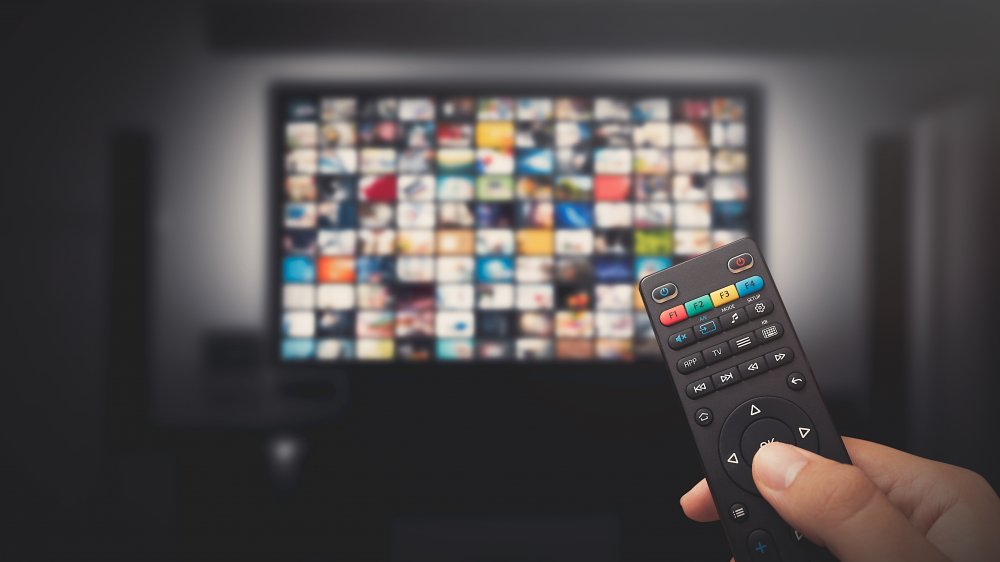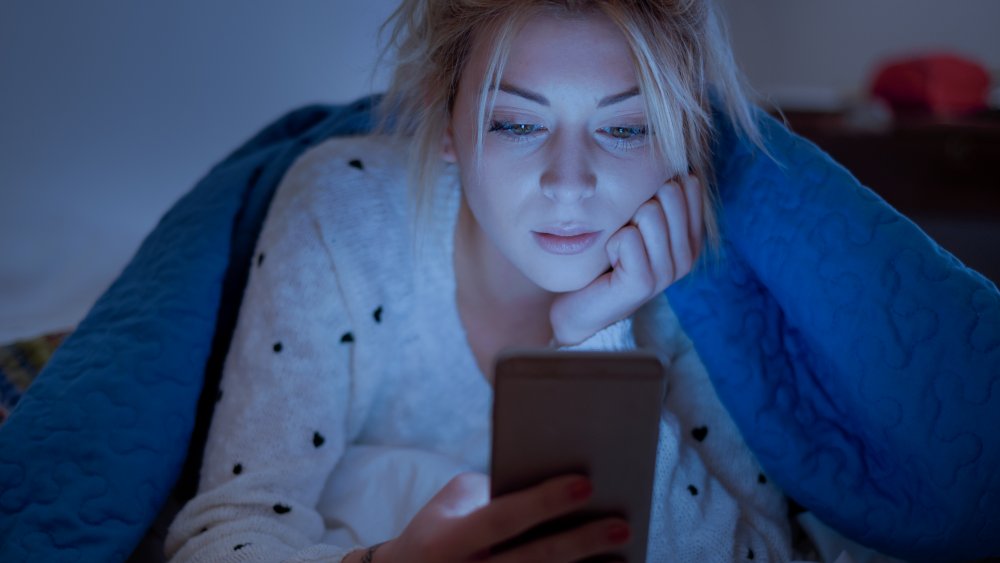You Should Never Watch TV Before Bed. Here's Why
It may be all too easy to just want to veg out and binge your favorite series after a long day at work. Watching TV before bed may feel like the best way to relax after a stressful day, but there are some negatives to consider before pressing play on the next episode.
One of the main arguments for not watching TV right before sleeping is the exposure to the "blue light" emitted from screens. Time reports specific studies that have suggested blue light is a melatonin suppressant. Melatonin is the hormone that is secreted when it's dark out, helping your body and mind get to sleep. When your eyes are subjected to light during the night time (especially the blue light emitting from many electronics) it can confuse the process, thus suppressing melatonin production.
Avoiding the melatonin-suppressing blue light means avoiding other screens like your phone and tablet, but it can be hard to break the habit of associating bedtime with phone time. Dr. Steven H. Feinsilver, director of the Center for Sleep Medicine at Lenox Hill Hospital in New York City explains to Healthline, "Beds are for sleeping, [with] one exception. Watching television and the internet are not it."
Late night screen time can affect the number on the scale
Another surprising effect of dozing off in front of the TV during the later hours is possible weight gain. A preliminary study reported by Today claims dozing with the TV lights on or sleeping in front of the TV may mix up your metabolism leading to weight gain, or even obesity.
Researchers in the study examined the sleeping habits of over 44.000 women along with their health and lifestyle questionnaires they periodically filled out at the beginning and during the five-year research period. The women who reported sleeping at night in a room with a lit television were more likely to gain a minimum of 11 pounds over those who slept in darkness.
Dr. Phyllis Zee, an expert in sleep and circadian rhythm disorders at Chicago's Northwestern University shares her belief with Today on how time in front of a screen should be seriously considered to avoid a variety of health issues. "Properly timed light should be considered as part of a healthy lifestyle," she said.


